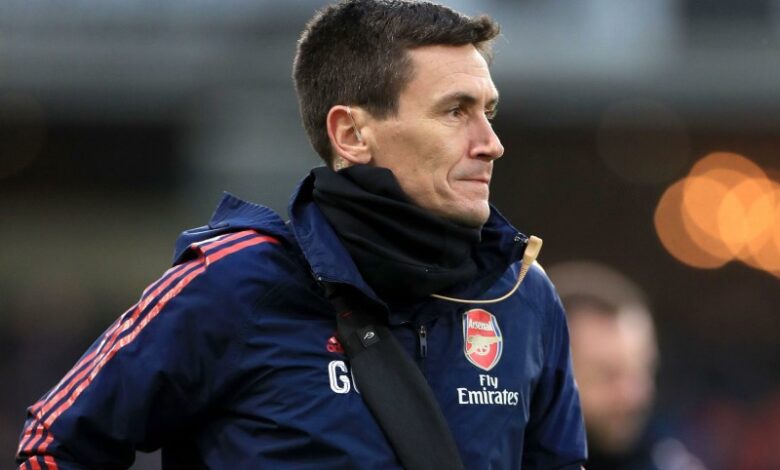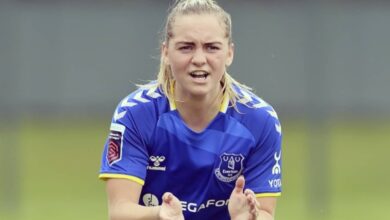Gary O’Driscoll: The Renowned Sports Medicine Expert at Manchester United

Gary O’Driscoll, a highly respected figure in sports medicine, has made remarkable contributions to the field of athletic healthcare. His extensive experience working with top football clubs and elite rugby teams has solidified his reputation as one of the most skilled professionals in sports medicine. Currently serving as the Head of Sports Medicine at Manchester United Football Club, O’Driscoll’s career has been a testament to his commitment to player health, injury prevention, and rehabilitation. In this article, we will delve into his career, achievements, and the impact he has had on sports medicine.
Early Career and Education
Gary O’Driscoll’s journey into sports medicine began with a solid educational foundation. He graduated from Imperial College London in 1997 with a degree in Medicine, setting the stage for his future in sports healthcare. His academic training provided him with the medical expertise necessary to excel in treating athletes and ensuring their peak performance.
Transition into Sports Medicine
Following his graduation, O’Driscoll embarked on a career that would soon see him working with some of the most prestigious teams in the world. He initially gained experience with the Ireland Rugby Team, where he served as a team doctor from 2003 to 2009. During this period, he worked on the frontline of rugby’s intense physical demands, gaining invaluable experience in injury management and rehabilitation.
His expertise in handling rugby injuries led to his selection as a Team Doctor for the British and Irish Lions. O’Driscoll participated in two Lions tours, traveling to New Zealand and South Africa. These tours were critical moments in his career, allowing him to apply his knowledge in a high-stakes, international setting.
Joining Arsenal: A Game-Changer in Sports Medicine
In 2009, O’Driscoll transitioned to football when he was appointed as the Head of Sports Medicine at Arsenal Football Club. This marked a significant turning point in his career, as he transitioned from rugby to one of the world’s most prominent football clubs. At Arsenal, O’Driscoll implemented innovative medical practices that had a lasting impact on the team’s approach to player health.
Revolutionizing Medical Services
During his 14-year tenure at Arsenal, O’Driscoll played a pivotal role in improving the club’s medical services. His primary focus was injury prevention, rehabilitation, and player recovery. Under his leadership, Arsenal saw significant improvements in reducing player injuries and ensuring a quicker return to play for injured athletes. His success was evident in the club’s overall performance, with players being able to maintain their peak physical condition throughout the season.
Additionally, O’Driscoll’s work extended to both the men’s and women’s teams at Arsenal, ensuring that medical practices were standardized and that all players, regardless of gender, received the same level of care. His holistic approach to player welfare made him a vital part of the club’s operations.
Leaving Arsenal for Manchester United
In September 2023, O’Driscoll made the bold decision to leave Arsenal after over 14 years and join Manchester United as the Head of Sports Medicine. This move was seen as a major development in his career, marking his transition to one of the most prominent football clubs in the world.
At Manchester United, O’Driscoll was tasked with leading the medical department across the men’s, women’s, and Academy teams. His role involved overseeing player health and well-being, implementing injury prevention strategies, and managing rehabilitation processes. His arrival was seen as a significant step forward in enhancing the club’s medical services, especially following some injury struggles that Manchester United had faced in recent years.
Medical Philosophy and Contributions to Sports Medicine
O’Driscoll’s medical philosophy revolves around comprehensive care for athletes. He focuses on a combination of injury prevention, early diagnosis, and effective rehabilitation. His strategies include detailed pre-season screenings, advanced diagnostic methods, and personalised recovery plans tailored to each player’s needs. These practices ensure that athletes recover faster and can return to peak performance sooner, which is crucial in the high-demand world of professional sports.
Preventative Medicine
One of O’Driscoll’s key contributions to sports medicine is his emphasis on preventative care. At both Arsenal and Manchester United, he implemented cutting-edge screening processes to detect potential injuries before they occur. This proactive approach allows athletes to maintain long-term health and avoid the setbacks that come with chronic injuries. By focusing on prevention, O’Driscoll has helped extend the careers of numerous athletes, keeping them on the pitch and free from long-term injuries.
Rehabilitation and Recovery
Another area where O’Driscoll has made a significant impact is in player rehabilitation. After an athlete sustains an injury, the road to recovery is critical, and O’Driscoll has been instrumental in developing effective rehabilitation programmes that help players return to action more quickly. His rehabilitation techniques combine medical science with sports psychology to ensure that athletes are not only physically ready but also mentally prepared to return to competition.
Contribution to Research
Beyond his day-to-day responsibilities, O’Driscoll has also contributed to the wider field of sports medicine through research. He has been involved in studying the impact of sports injuries on performance and has collaborated with experts to develop new treatments and recovery methods. His research has influenced the way that many clubs approach player care and injury prevention.
Impact at Manchester United
At Manchester United, O’Driscoll has already made significant strides in improving the medical department. His time at the club, though brief, has been marked by efforts to overhaul the medical infrastructure and introduce more rigorous protocols for injury prevention and recovery. He has worked closely with the team’s management to ensure that all medical staff are aligned with his vision for player health, ultimately aiming to reduce the number of injuries that have plagued the club in recent seasons.
Injury Management and Rehabilitation
Under O’Driscoll’s leadership, Manchester United has witnessed an improvement in injury management, with a focus on ensuring that players are given the proper care and attention needed for optimal recovery. His emphasis on a team-oriented approach to injury management has helped to create a more collaborative environment among medical staff, players, and coaching staff.
The Future of Sports Medicine
Gary O’Driscoll’s work in sports medicine is far from over. His continued contributions to the field are shaping the future of player care. As sports medicine continues to evolve, O’Driscoll remains at the forefront, constantly looking for ways to innovate and improve the way that athletes are cared for. His impact on the medical world, particularly in football and rugby, will be felt for years to come.
Gary O’Driscoll’s impressive career in sports medicine has seen him work with some of the most elite teams in the world. His contributions to Arsenal and Manchester United have made him a household name in the world of sports medicine. His association with Liverpool and the rugby world, as well as his familial connection to the famous Brian O’Driscoll, further highlights his legacy in the sporting community.
His commitment to improving athlete health has revolutionised the way sports clubs approach injury prevention and rehabilitation, ensuring that athletes stay at the top of their game for longer.
In conclusion, Gary O’Driscoll’s contributions to sports medicine have been nothing short of revolutionary. His work with top football clubs and rugby teams has set a new standard for player care, making him a leader in his field. As he continues to lead the medical departments at Manchester United, his influence on the future of sports medicine remains significant.


